WILL BOWLBY, KRICKET
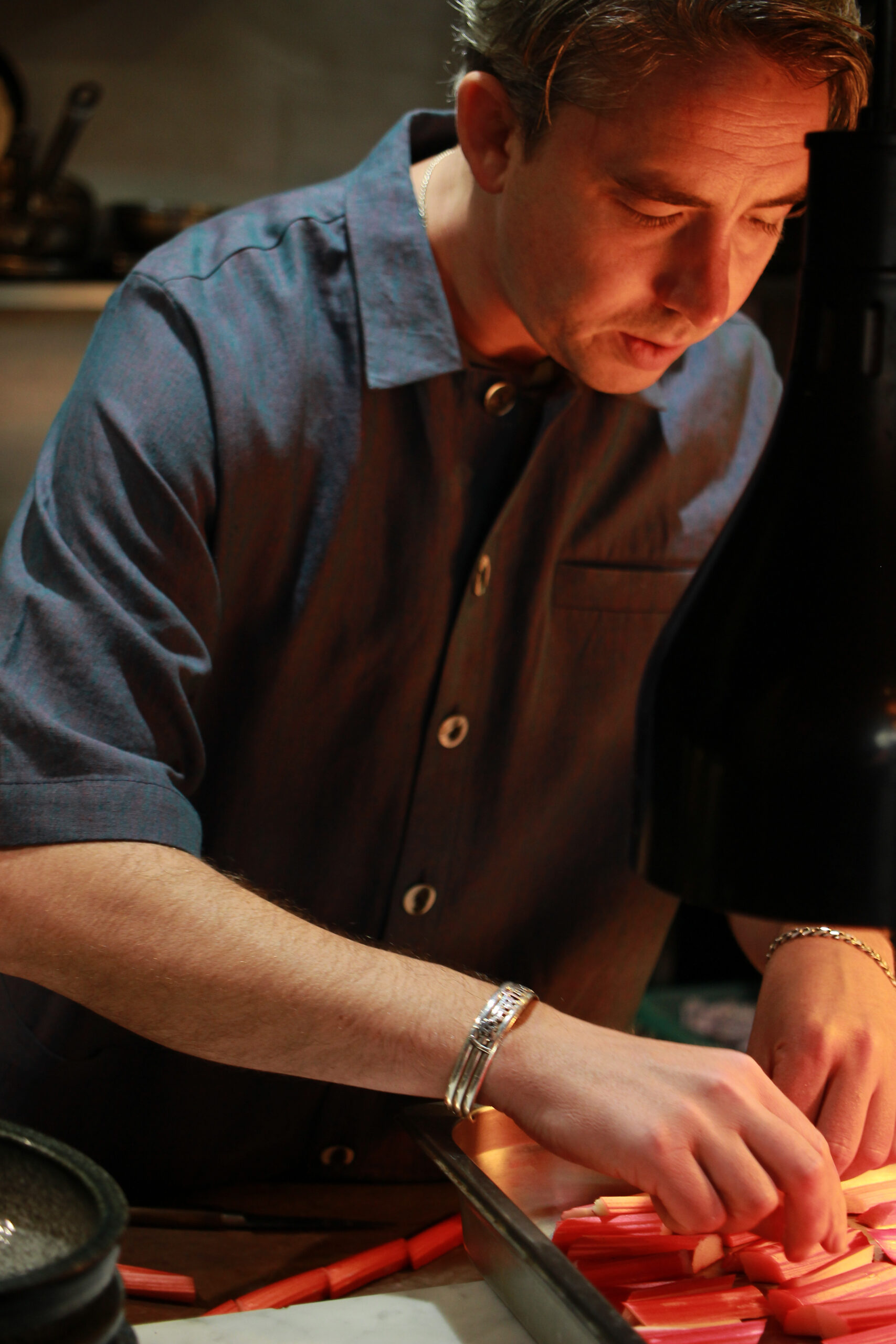
Kricket is a collection of modern Indian restaurants combining British ingredients with the flavours and aromas of India. Kricket was founded in 2015 by university friends Will Bowlby and Rik Campbell.
Having started life in a 20 – seater shipping container at Pop Brixton, Kricket now operates three permanent locations in Brixton, Soho and White City.
Will sat down with Paul and Debbie Missing to talk about his journey to Kricket and beyond.

Debbie Missing (DM): We feel there are real parallels between what chefs are doing and what we’re doing. We face many of the same challenges, especially post Brexit, and we want to shine a light on London chefs, share the challenges we’re facing and just celebrate the craft and care that goes into our work.
Will Bowlby (WB): How long have you got?!
DM: I think we might need wine for that!
WB: It’s endless, but I agree, there are some wonderful similarities too, like with many industries.
Paul Missing (PM): We’ve been to a few of your different spaces and love the variety. Which is the biggest location you have now?
WB: Thank you! The menus are very similar, but there are differences in different spots. The biggest location is White City, but we’re about to open another restaurant in Canary Wharf in July. You know Soma, our bar?
PM: Yes, we do.
WB: We’re going to be doing a Soma and restaurant in Canary Wharf. Square footage it’s the largest but inside it will be split up, as this is.
DM: That will be a very different customer, I’d imagine.
WB: Yeah, yeah, it’s interesting one – If you’d told me a few years ago we’d be opening in Canary Wharf I wouldn’t be sure about it at all, but the area’s changed quite a lot and a lot of people are visiting there, a lot are loving there now, and we’ve found this really unassuming building underneath the DLR, so we’re similar and under the trains again, with all the glass towering over us, we’re this tiny little thing, just like the underdog!
So you’ve done a few of these already?
DM: Yes, they’ve been great and everyone’s so different, it’s been so interesting and so fun. One thing that keeps coming up is the atmosphere in the room being as important as the food. And the people that work here. Everything contributes to a really memorable meal and evening.
WB: 100%. I always think if you have good food and bad service you’re less likely to return than if you have good food and great service. I’m personally a little bored of the Michelin starred food, not that I’ve eaten lots of it, I just don’t think I have as good a time as I do in a restaurant that just does really delicious food without the pretence.
DM: It’s also about being enthusiastic too I think. If the people working there are excited it instantly elevates the experience. When they can’t wait to tell you about the wine, or a particular dish, that makes such a difference.
WB: Exactly, people need to relax a bit!
DM: So true. It’s so much about the interaction.


DM: You’re back from a month in Mumbai and I know you’ve been to India many times, but do you try and go to a different city each time?
WB: Yeah, but I used to live in Mumbai, so I know it really well, but we did a pop up this time and it was great to go out and show the team how things work over there and show people there what we do. I feel like I know myself there and I feel confident I can show the team around. It’s a city I know where to go, I’m very comfortable, I feel very safe there.
DM: Wow, and how long did you live there?
WB: Nearly two years. It was challenging, it’s one place to visit and one place to live in. To visit it’s ok, to live there is kind of hard.
DM: So vast too.
WB: Yeah, but because of that there are so many places there, so there’s always something new to discover, which I think is so important. And it’s lovely to go back and discover something new.
DM: And where’s next on the list?
WB: Punjab I haven’t done yet. Lucknow I’ve been to but I’d love to go again, specifically for the food. Calcutta, again I’d like to go back too.
DM: And the food is so regionalised too.
WB: Exactly, that’s what we like to do with Kricket, to be regional and offer. To reflect that kind of approach – What’s on offer here is a very small proportion of what it is. I love being able to go back to a place and try new things, it’s so exciting.
Kerala too, actually, I’d add that.
DM: I went to Kerala just before lockdown actually. I really loved it.
Where did your journey start with cooking?
WB: Way back when I was about 10. That’s when you know, Jamie Oliver was going down those spiral staircases and I thought, ‘That’s quite cool what he’s doing, making it quite accessible’. And that’s where my interest began and since then I’ve just cooked. When I was 16 I started my own one-man catering company, doing dinner parties, which got me cooking for people. Professionally it started after uni. I went to a kitchen with Rowley Leigh. So he kind of taught me everything I know, especially in terms of the basic skills.
DM: Was that the restaurant in Kensington Church Street? We went there a few times.
WB: Yeah, so that was my home for a couple of years, and he really taught me the French classics, which was hugely valuable, and then I left there and wanted a new challenge and it just so happened that someone from India said ‘Can you came and open a restaurant our here in Mumbai?’ and that was it really.
PM: Wow!
WB: Yeah! I wasn’t ready at all, I was 24, very inexperienced, but they didn’t know that! I had a trial and they seemed confident.
PM: So was it their idea to combine French and Indian cuisine?
WB: No that was mine, but when I arrived they told me French cuisine was bland, so that didn’t work! But I went over with stuff I’d learned and I knew it was good. But also, when I got there, the place was rubble, the kitchen was being built on the spot, so it was a ground up creation. And I think they knew European food as being quite ‘continental’, a bit of an amalgamation, so my little French menu got thrown out the window!
So then I started battling to stick to my guns but eventually, I lost out. Ultimately it was their restaurant after all, they know the customer best, my little menu wouldn’t have worked, so I stuck it out for nearly two years and gave it my all.
PM: That must have been quite tumultuous?
WB: Yeah, it was a little bit. But I’m incredibly grateful for the experience. I wouldn’t have Kricket if it wasn’t for that, so I wouldn’t change a thing, but it was definitely one of those challenges.
PM: I think those younger years are challenging anyway. You’re trying to hold onto your passion and convictions, but you’re still growing and need to learn.
WB: Oh yeah, I had so much to learn at that point!
PM: And it’s so pivotal, when you realise that, you unlock so much.
WB: Absolutely, it’s invaluable.
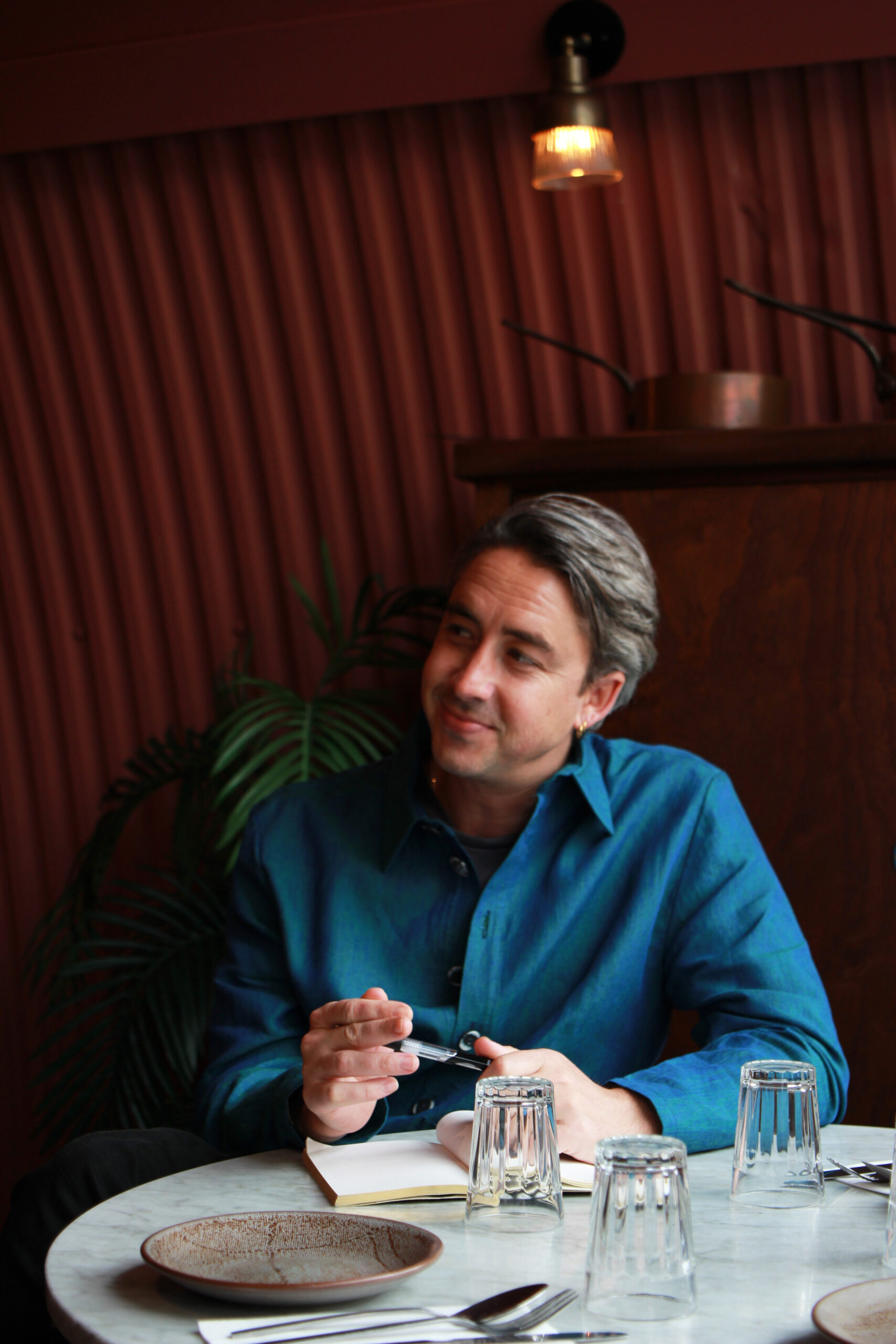
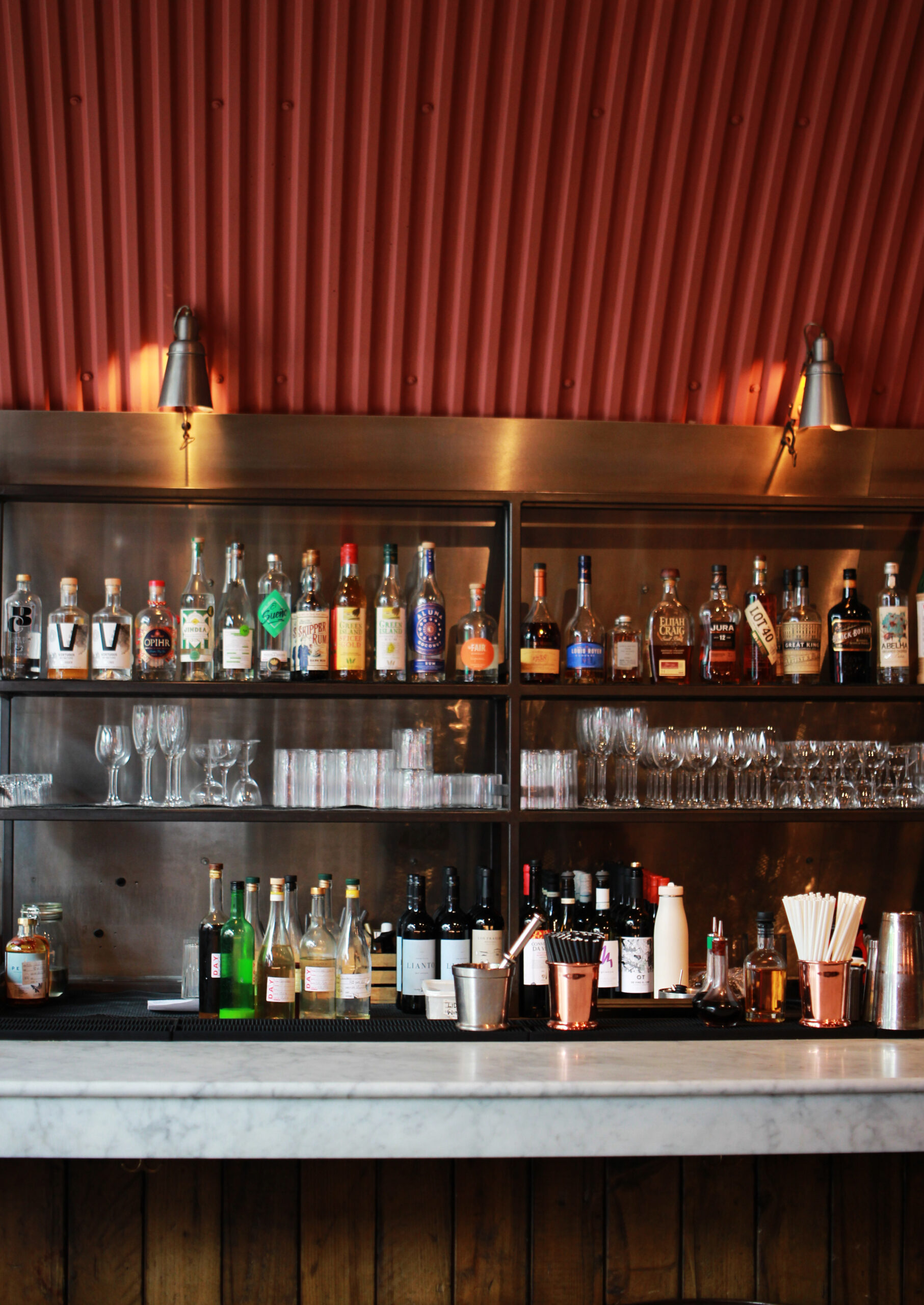
PM: How long between that and Kricket opening?
WB: So I came back with all these recipes and ideas and menus without really having any idea how to cook them, and I’d learned a bit about how to cook them, but not enough. It’s not the kind of cuisine you can wing, so I went to work with Vivek Singh in his kitchen at The Cinnamon Club in the city, and again, he was a very generous, kind man. I said to him, “I need to learn” and he was happy to teach me, and taught me that you don’t have to be of Indian descent to cook the food, which was a thing for me, I really respect the cuisine and the culture and didn’t want to mistreat it, so it was important for me to learn the basics and he taught me for about a year. And then it was about finding the right site, so me and my business partner Rik started hunting and found the little space around the corner.
PM: I do always think that French cuisine gives you an amazing foundation. Is that the same case with some of the Indian dishes? Is there a crossover at all? Or is it the principle that matters?
WB: The principles are everything. I would say to any aspiring chef, go and learn the classics, that gives you the platform to do anything. When it comes to Indian food, there are certain techniques that have to be there – how you cook your onions, how you treat your spices, it’s different according to different curries and dishes, but there are definitely things you have to know about.
With French, it can be a simple cuisine but it’s also incredibly complex. But with Indian cooking, you’re using that many more ingredients and particular spices, and their way is right. It’s very complex. That doesn’t mean it’s hard and complicated, but it’s very complex in taste and in the nuances. It changes house to house, let alone the restaurants and regions.
DM: And it’s passed down generations, so rich in depth and history too.
WB: Very much so.
DM: Favourite ingredients?
WB: Spices are always special. Whether it’s Mace, Star Anise, Kashmiri chillies, these are probably my favourite curry leaves. I love what fresh curry leaves do. Some are from travels, some from our suppliers.
DM: And all the same suppliers?
WB: We split between two fish suppliers, two meat suppliers, two fruit and veg suppliers. Five of our suppliers have been there from day one, so that’s important. Keeping those relationships matters, you need to lean on them, they need to lean on you. But also things change, it’s business, so balancing between being honest and open. If you stick to that, you’ll be ok.

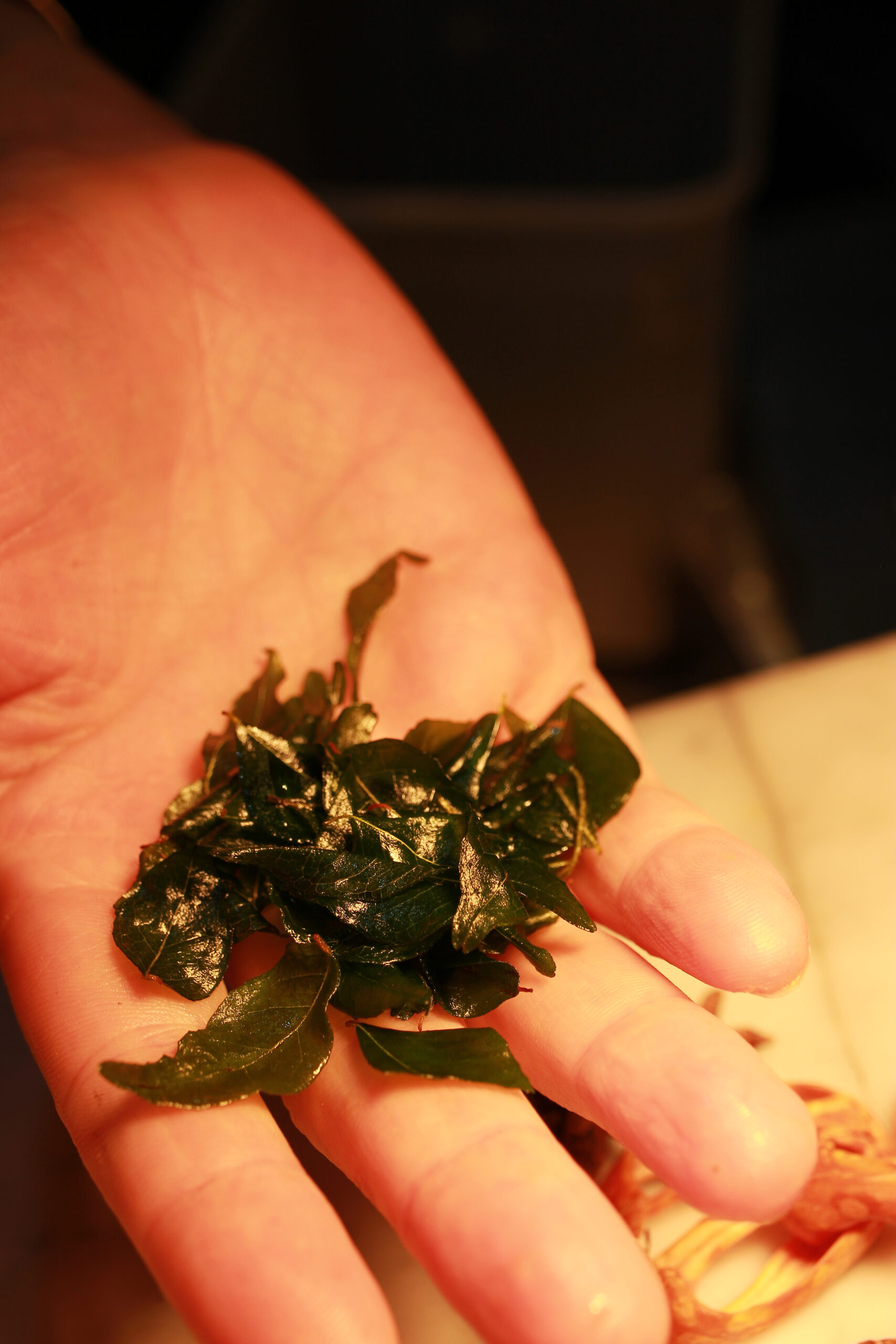
DM: Is there a particular chef you admire?
WB: Lots. I’m always grateful to Rowley for teaching me everything and Vivek as well. There are lots of chefs I admire for many reasons. The ones who have been generous to me over the years, people like Michel Roux Jnr,
Pierre Koffmann, serious chefs who dare to look at me, let alone give me any attention, but you know, they like what we’ve done and that means a lot and I respect them a huge amount.
Michel has been extraordinarily generous, so those are the chefs I respect, who are just incredibly nice and take the time. You might find other chefs who aren’t as talented, but maybe think they are, so it’s those personalities who are so talented that give back.
DM: Yes, it’s almost as though they want to pass their knowledge on and really help the next generation.
WB: Yeah, and that’s so powerful. That’s how it should be.
DM: It should be, but it isn’t always.
WB: Yes, but it really should be. When you have a team and you have a restaurant, you should pass your knowledge, you shouldn’t be full of closely guarded secrets.
DM: It’s also so satisfying too, to see one of your team really inspired by something you’ve shared to go on and do something incredible by themselves.
WB: It’s great to see a chef who’s worked for you want to go on and do their thing. That’s happened a lot here and it’s great to see, it has to be encouraged. When it’s time for a chef to move on you should help them with that.
DM: And it’s a reflection on you. They’re doing that because of your influence.
WB: It’s the way I did it. You learn as much as you can in one place and then you move on.
PM: Last one – What do you like about MISSING?
WB: I really like the worker wear style, so I was naturally drawn to that aspect, and then seeing them in the flesh, you see the hue and the sheen of the colour, the way it varies in the light. I love the way it fits, and I love the buttons. I love the story of where you find the components and how you procure all the materials, and I think it’s all really lovely. You see worker wear a lot, but not like this.
Will wears the M01 Cyan Two Pocket Jacket and the M04 Teal Short Sleeve Shirt, available exclusively at Selfridges.
APRIL 12th 2024
Photographs by Izy Dixon
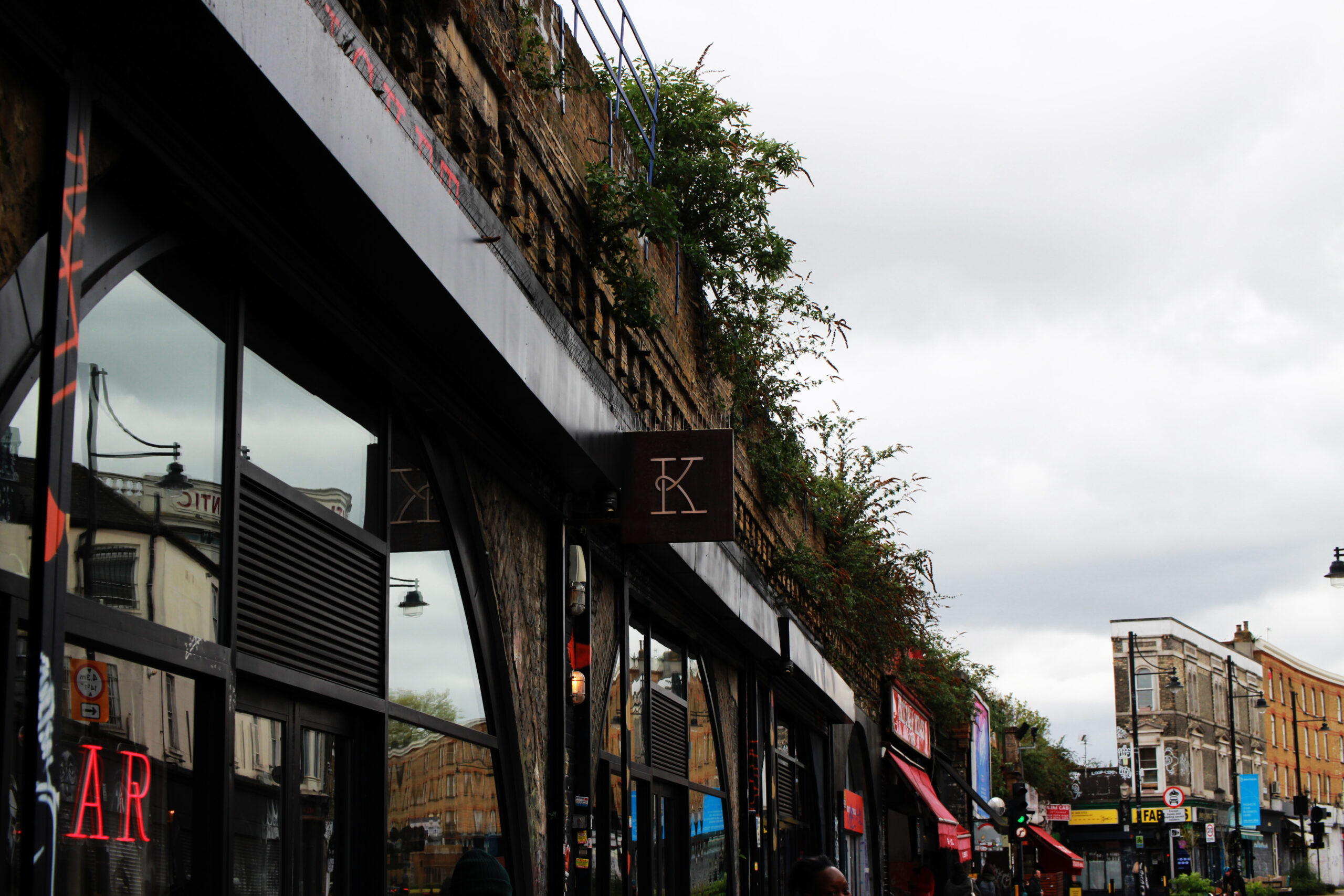
KRICKET BRIXTON
41-43 Atlantic Road
Brixton
London
SW9 8JL
OPENING TIMES
Monday – Thursday: 5:00pm – 10:30pm
Friday & Saturday: 12pm – 10:30pm
Sunday: Closed